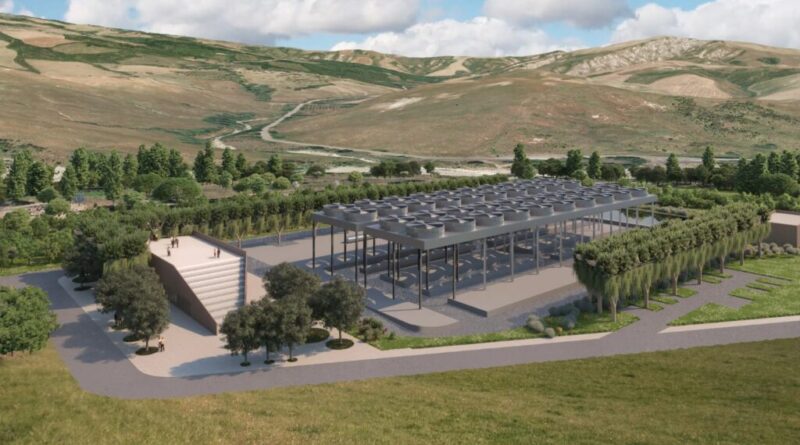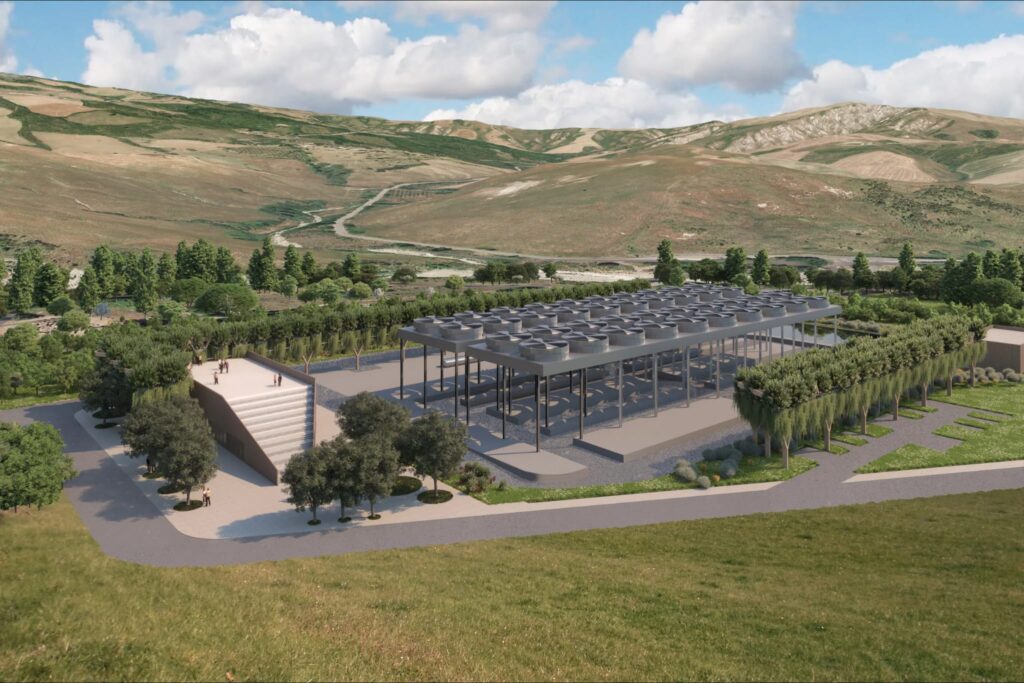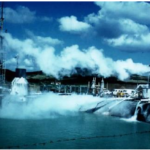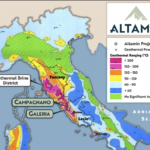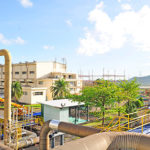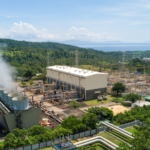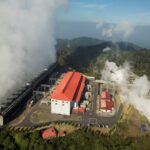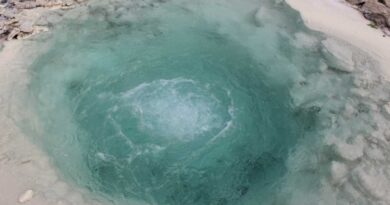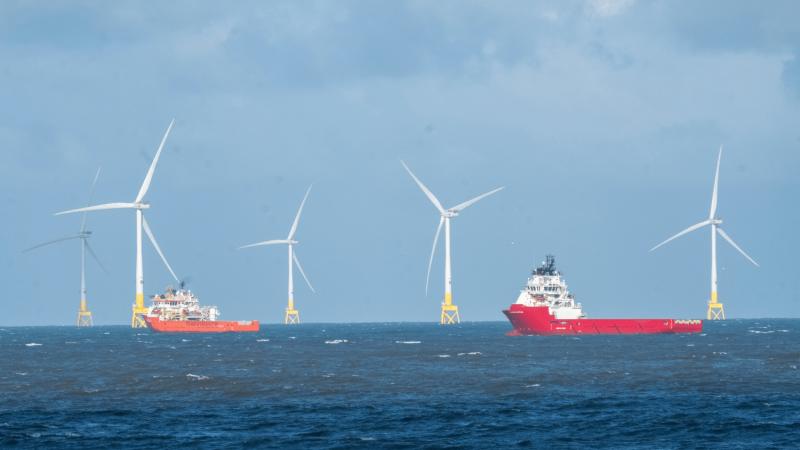New study highlights potential of binary geothermal technology in Italy
Energy Disrupter
A study published by Rete Geotermica examines the potential for deploying binary geothermal technology in Italy, and how this can be enabled by policy support.
A study published by Rete Geotermica in collaboration with The European House – Ambrosetti highlights the untapped potential of binary geothermal power plant technology in Italy. Such technology can utilize lower-enthalpy geothermal resources which can contribute up to 10% of the electricity production or 25% of the thermal energy consumption of the country.
The full report, ““La geotermia a emissioni nulle per accelerare la decarbonizzazione e creare sviluppo in Italia” / “Zero-emission Geothermal to Accelerate Decarbonization and Foster Development in Italy” can be accessed via this link.
Binary power plants – an untapped resource for Italy
Despite the prevalence of binary power plant or ORC technology in geothermal projects around the world, no power plant of this type is currently active in Italy. All active geothermal power plants operated by Enel Green Power use dry steam or flash technology, harnessing energy from high-temperature geothermal fluids.
According to the study, exploiting just 2% of the geothermal resources in the first 5 kilometers of depth can contribute 10% of the electricity needs expected in the country by 2050. Conversely, using this energy for heating can contribute up to 25% of the current heating consumption.
Moreover, binary power plants allow for the total reinjection of fluids into the subsurface, making them “zero emissions” facilities.
Ambrosetti emphasizes the multiplier effect of geothermal development, stating that EUR 1 invested on geothermal creates another EUR 2 in value for the rest of the economy. Geothermal creates approximately 6,131 new jobs for each GW installed, making it the green technology with the highest employment opportunity.
A huge pipeline of geothermal projects
Members of the industry association Rete Geotermica currently has 44 geothermal projects under development with a potential for over 800 MWe of installed power capacity and around EUR 8 billion of investments. “Unfortunately, to date, no plant has been built due to the complex authorization processes and the lack of adequate support policies for the development of this type of project,” explains Rete Geotermica President Fausto Batini.
Rete Geotermica is an association of companies borne from the desire of some operators holding research permits to create a supply chain capable of harnessing the geothermal resource that is widely present in Italy. It also includes companies that provide highly specialized services in the exploration field (geological, geochemical, and geophysical characterization) and in the studies of feasibility and subsequent engineering. Suppliers of binary ORC systems are also part of the association.
The challenge brought about by the lack of policy support was echoed by Matteo Quaia, General Manager of Rete Geotermica and CEO of Steam Srl. “Despite the liberalization of the monopoly on the cultivation of geothermal resources, which occurred more than 10 years ago, and the consequent great interest of the private sector which gave rise to the development of more than 70 projects for a development potential of more than 1.2 GW, to date, no plant has been built due to the complex authorization processes and the lack of adequate policies to support its development type of projects. Ultimately, this is a wasted opportunity so far and we don’t want to resign ourselves to losing it!”
A call for legislative support
Among the goals of publishing the report is to create an awareness among the Italian stakeholders that can lead to the simplification of the authorization process for geothermal projects, as is happening in a large part of Europe and in alignment with the European policies in matters relating to the energy transition.
Ambrosetti states that among the major factors holding back further geothermal development are the high risks of initial exploration and the overly complex authorization process. To overcome these, the report makes several recommendations including:
- Incentive tariffs equal to EUR 300/MWh for the first 10 years, which can then be reduced to EUR 200 for the following 15 years;
- De-risking measures to protect investors from the intrinsic risk of discovery in geothermal projects, such as in the drilling of the first exploratory well; and
- A streamlined and optimized authorization process.
“We need a national energy strategy that recognizes the full potential of zero-emission geothermal technology. Achieving this strategy includes identifying clear goals for geothermal development as a part of the country’s wider energy sector strategy, in particular those cited in the National Integrated Plan for Energy and Climate (PNIEC),” added Quaia.
“Additionally, we propose the creation of a National Geothermal Authority to oversee our geothermal industry, ensuring a more efficient and inclusive development plan.”
Regaining its former glory
At one point, Italy held the 4th highest position globally in terms of installed geothermal power capacity. It has since slipped to the 8th position. The fact that there have been no new power plants in more than a decade, of course, points to larger systemic problem.
However, Italy has the technical expertise and capabilities to support the resurgence of its local geothermal industry. Ironically, Italian companies have contributed significantly to the growth of geothermal industries in many other countries. “The contrast between the stagnation that has occurred in the last 10 years in relation to new installations while the participating companies have provided design and consultancy services or plants built abroad for more than 1 GW is very thought-provoking,” commented Quaia.
“Italy is indeed well-positioned to reclaim its leadership in the geothermal sector. We have both boots-on-the-ground know-how and world-renowned power plant suppliers, the most recognizable perhaps being binary ORC suppliers Exergy and Turboden. There are also internationally recognized engineering and consulting firms for both upstream [subsurface] and downstream [surface facilities], including major players like SLB and private firms like Idrogeo and Sintecnica, and our specialized company, Steam.”
Back in the top 3?
With over 1.2 GW of potential geothermal capacity in various stages of development, fast-tracking these projects can easily put Italy back on the top 3 of the global geothermal power capacity rankings. Continuing to exporting the expertise from Italy also benefits the wider global geothermal sector.
“We believe that Rete Geotermica’s efforts to nurture this ecosystem, supporting industry leaders and fostering innovation through research and development initiatives, is the right approach to fully realize our national capabilities and to position Italy once again as a global hub for geothermal technology.”
Source: ANSA.it, Greenreport.it, and Steam Srl via personal correspondence

